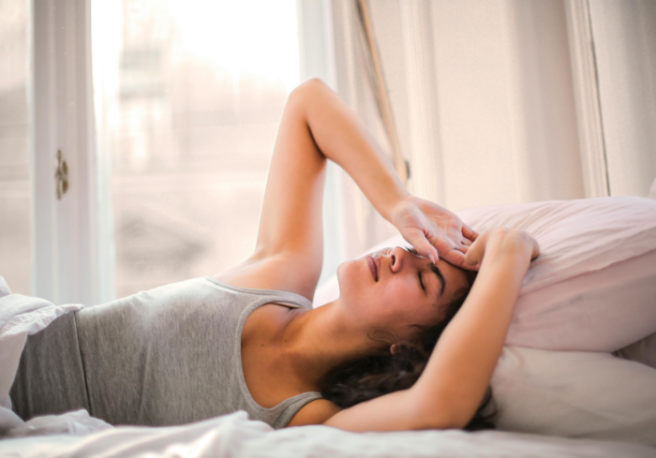
Having trouble sleeping? How to tell if you have sleep apnoea
Are you struggling to catch enough sleep?
While there are many reasons why you might be having difficulties with sleep recently, there is one answer that you might not have looked into yet – sleep apnoea.
If you have never heard of it before, obstructive sleep apnoea (OSA) causes a narrowing of the throat during sleep. This can then lead to your breathing stopping and starting, resulting in you having a poorer night of sleep and feeling exhausted the next day. Sleep apnoea can occur multiple times during one night of sleep – and you might not even realise it’s happening.
While it is important to get an official diagnosis for sleep apnoea disorder from your doctor before treating it, you can still take the opportunity to look into its key symptoms, to help you figure out if you might be suffering from it.
To help you along the way, the experts at Mattress Online have recently highlighted the key signs of sleep apnoea, and simple things that you can introduce into your lifestyle to help reduce its impact:

How do I know if I have sleep apnoea?
James Wilson, The Sleep Geek, explains: “One of the most easy-to-spot symptoms of sleep apnoea is around our breathing and the noises we make. If you, or the person you sleep next to, makes a choking gasping sound during the night or appears to stop breathing, or if these two things happen together, then you need to go and talk to a medical professional and get tested for the disorder."
According to the American Academy of Sleep Medicine, symptoms can include:
Changes in mood, with increased irritability the most common.
Waking up with a headache.
Feeling more tired than normal, and experiencing difficulty staying awake during the day.
Being unable to concentrate on daily tasks or work.
Having trouble falling asleep and staying asleep.

What causes sleep apnoea?
There are several reasons why you can develop sleep apnoea disorder, including being overweight, having a larger neck or large tonsils, going through menopause and smoking. Medical studies have stated that men are twice as likely as women to suffer from the condition, and while older people are more likely to have sleep apnoea, it can develop in younger people, too.
How do I get a diagnosis?
If you end up reaching out to your local GP about sleep apnoea, they might refer you to a sleep clinic for further tests. One such test is that you might be given equipment to take home and wear overnight. The device will monitor your breathing and heart rate while you sleep, and the results of these tests will be able to showcase if you have sleep apnoea.

How can I treat sleep apnoea?
Like many medical conditions, healthcare professionals recommend that you should implement healthier lifestyle changes, such as giving up smoking, reducing your alcohol intake, lowering your stress and anxiety levels, and losing weight. However, if none of these tips end up helping to make a difference, you might need to use special breathing apparatus while you sleep.
The most common option is a continuous positive airway pressure (CPAP) machine. This technology involves wearing a mask while you sleep, which gently pumps air into your mouth and/or nose to continuous circulation and stopping any irregularities.
You can also test out a mandibular advancement device. Similar to a gum shield, this helps to keep your airways open while you’re sleeping. In extreme cases, surgery to remove your tonsils might also be recommended.
If you have serious concerns surrounding your sleep, it is highly recommended that you should make an appointment with your doctor.






